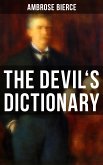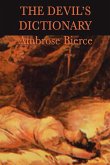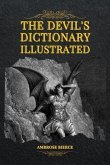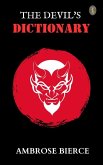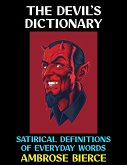In "The Devil's Dictionary," Ambrose Bierce offers a brilliant and satirical lexicon that critiques the hypocrisy and absurdities of human nature and societal conventions. Written in a sharp, witty prose style that exemplifies Bierce's mastery of irony and wordplay, the work transforms the conventional dictionary format into a highly subversive commentary on language and morality. Through entries that humorously redefine common terms-often with biting cynicism-Bierce exposes the folly and contradictions inherent in human behavior, positioning the work both as a linguistic innovation and a profound philosophical inquiry into the darker aspects of the human condition. Ambrose Bierce, a noted journalist, and Civil War veteran, was deeply influenced by his tumultuous experiences and his disillusionment with societal norms. His sharp observations of war and human frailty provided fertile ground for the incisive dissection of moral and ethical principles found within "The Devil's Dictionary." Through this work, Bierce channels his skepticism toward language as a tool for truth, revealing his belief that words often mask deeper realities. Readers drawn to biting satire and philosophical musings will find "The Devil's Dictionary" an essential read. Bierce's unique lexicon not only entertains but compels reflection on the complexities of language and morality, rendering this book a timeless commentary that remains impactful for contemporary audiences.
Dieser Download kann aus rechtlichen Gründen nur mit Rechnungsadresse in A, B, BG, CY, CZ, D, DK, EW, E, FIN, F, GR, H, IRL, I, LT, L, LR, M, NL, PL, P, R, S, SLO, SK ausgeliefert werden.



